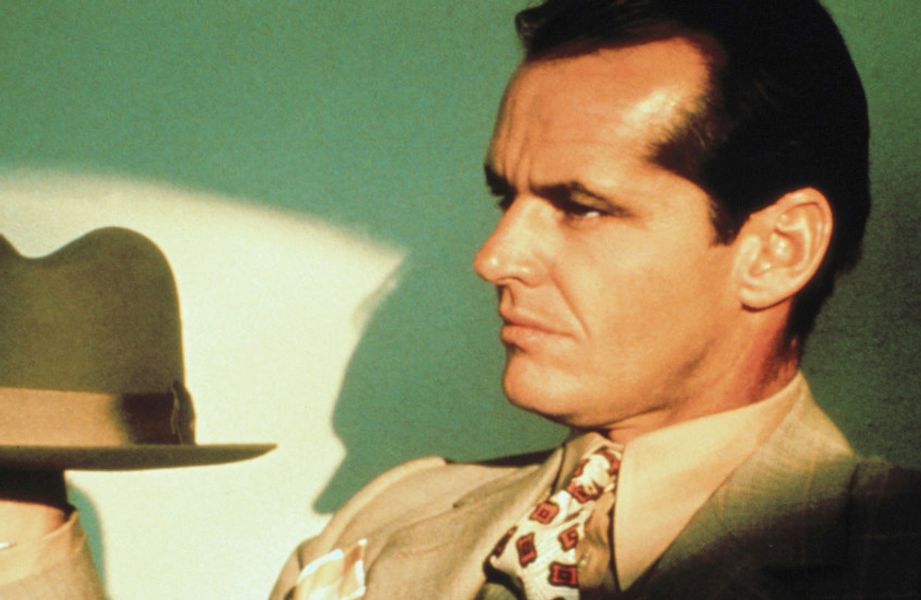“She is my sister and my daughter,” Faye Dunaway’s evocative dialogue from Chinatown exemplifies the pervasive darkness, avarice and perversion simmering beneath the central tenet of the 1974 neo-noir classic. As John Huston says in the film: “You see, Mr Gittes, most people never have to face the fact that at the right time and the right place, they are capable of anything”.
Chinatown is a dialogue on darkness, the rapacity behind the shroud of glamour and an exercise on the convolution of the psyche of human anthropology. An evolution paying homage to the corruption and water wars that changed the face of Los Angeles in the 1930s. Thus the irony is not lost, that Sam Wasson’s book, The Big Goodbye: Chinatown and the Last Years of Hollywood, holds Chinatown as the metaphoric turning point in the evolution of Hollywood as “’70s filmmaker-friendly studios gave away to the corporate Hollywood as we know today”.
The conception and making of Chinatown is as much about the men in power at play in a man’s world as the story in the movie itself, with ’70s juggernaut Paramount Studios’ producer Robert (Bob) Evans at the helm, controversial French-Polish director Roman Polanski and writer Robert Towne joined forces because they wanted to “write a picture for Jack (Nicholson)”. With that in mind, it comes as no surprise that when it came to casting the female lead in the film, the boys club of Woodland (Bob Evans’ Beverly Hills home and the watering hole for Hollywood’s elite) played a bit of Russian roulette with the casting.
In the film, Jack Nicholson plays J.J. Gittes, a P.I who is approached by a mysterious femme fatal Evelyn Mulwray to embark on a case that unravels a much darker corruption. While Nicholson was locked in to play Gittes from the conception of the film, the role of Evelyn was originally intended by Towne for Jane Fonda. Evans, however, initially wanted to cast his wife Ali MacGraw as Evelyn. However, her affair with Steven McQueen and subsequent divorce put a halt to that casting endeavour.
Director Polanski had a different contender in mind for the role of Evelyn, Julie Christie, a friend of his last wife, Sharon Tate. However, according to an extract from Wasson’s book, Jack Nicholson went out on a limb to get Foye Dunaway on board as Evelyn. As chronicled by The Big Goodbye, Jack Nicholson made repeated late-night phone calls to Dunaway’s room in Madrid, where she was shooting persuading her to keep her dates free for Chinatown. He continued to implore her, baiting her with the tantalising allure of Evelyn’s character and scope, while she grew impatient with the absence of an imminent official offer. When the proposal failed to materialise in the following days, Dunaway opined to Nicholson, “Jack, why should I wait for something that might not be real?” But Nicholson asked her to wait, assuring her it was “worth waiting for”.
Simultaneously, the deal-mongering of producer Robert Evans was still at play with CMA star agent Sue Mengers who represented Dunaway. “I need an offer for Faye by the end of business Friday. Otherwise, she’s going to Arthur Penn for Night Moves,” he reportedly said. Sue Mangers opened with an ultimatum on a phone call to Evans. Evans stalled by saying he had to talk to Polanski first. Meanwhile, Jane Fonda was still in the picture. “Bluhorn (Studio head) wants to go with Fonda,” he told Mengers, “But you know me, I want Faye”.
The casting foreplay reached a stalemate when Evans put a number on the offer “Bluhorn would go for it – for fifty thousand”. Mengers countered with Dunaway’s Bonnie and Clyde success, Evan’s shut it down. “That was seven years ago.. there’s no money in the budget for it”. The negotiations were at an impasse. Mengers conceded, “We’ll take it”. Evans left her with a last cheeky retort, “Could be too late, I think we are moving forward with Fonda,” only to eventually confirm that Dunaway got the part. The repartee continued with Mengers shooting back. “Bobbee? There was nothing for Faye in ‘Night Moves'” and Evans’ checkmate. “Fonda passed (the offer)”. The anecdotal hustle of casting Evelyn finally gave film buffs the cold seductiveness of Evelyn Mulwray which will forever be imbued with the alabaster skin and mysterious stand-offishness of Faye Dunaway.
Wasson’s book The Big Goodbye: Chinatown and the Last Years of Hollywood further revealed accounts of Roman Polinski’s life, including the murder of his wife Sharon Tate by Charles Manson groupies and his alleged sexual assault of a 13-year-old child, which led him to flee the United States three years after Chinatown. Watson’s tell-all thesis is set to be made into a film directed and produced by Ben Affleck.
Chinatown and Wasson’s book both denote the end of an era. Wasson wrote, “As Hollywood’s energy shifted from film making to deal-making, its people and culture shifted from old hippies to young yuppies” and in the face of that tidal change, one can only say what the film concluded, “Let it go, Jack, It’s Chinatown (Tinseltown).”
